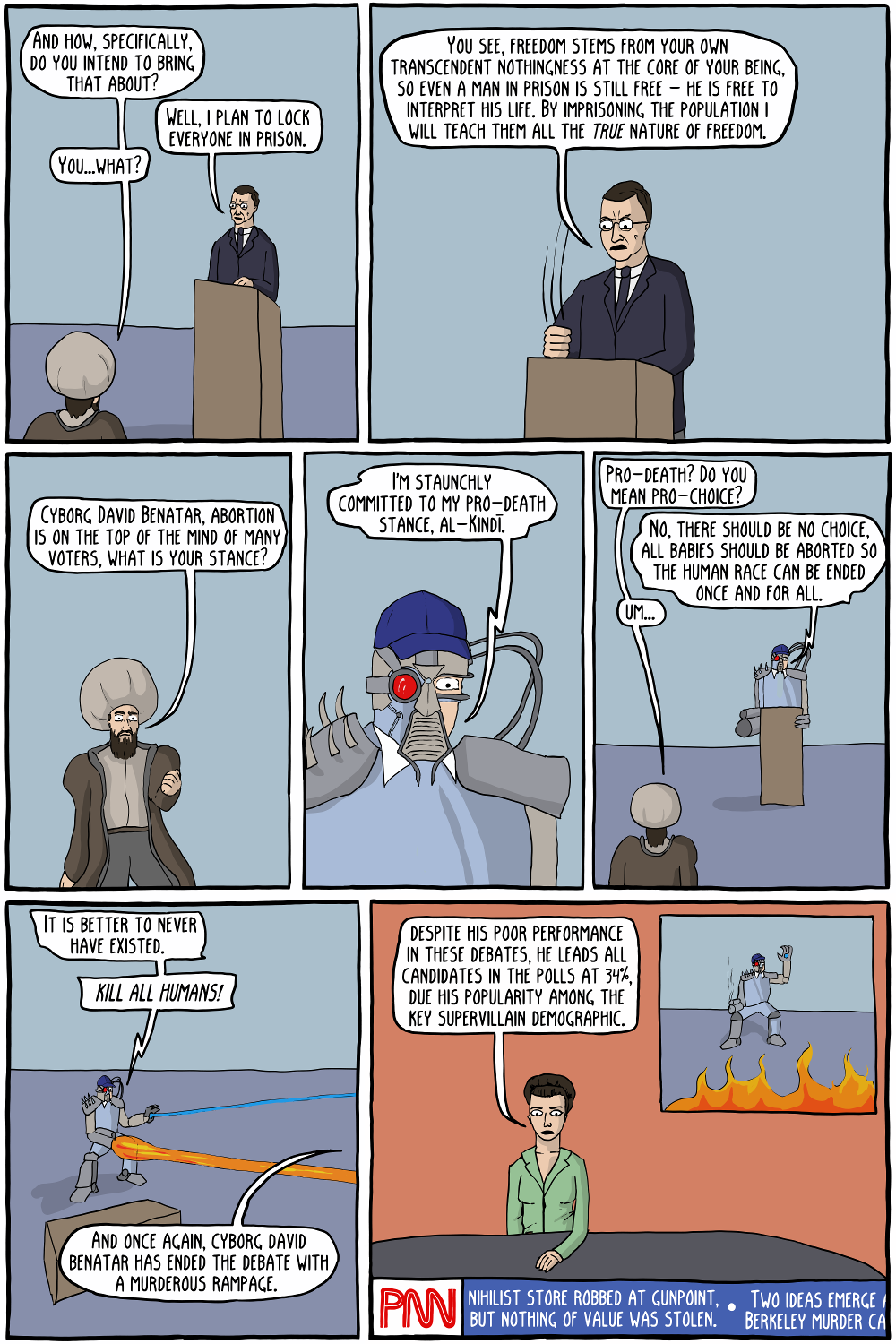this post was submitted on 08 Sep 2024
64 points (98.5% liked)
askchapo
22938 readers
41 users here now
Ask Hexbear is the place to ask and answer ~~thought-provoking~~ questions.
Rules:
-
Posts must ask a question.
-
If the question asked is serious, answer seriously.
-
Questions where you want to learn more about socialism are allowed, but questions in bad faith are not.
-
Try !feedback@hexbear.net if you're having questions about regarding moderation, site policy, the site itself, development, volunteering or the mod team.
founded 4 years ago
MODERATORS
you are viewing a single comment's thread
view the rest of the comments
view the rest of the comments

I mean, is this an uncommon thought? Isn't that what Mary Shelley's Frankenstein is about, for example?
Whether it is uncommon or not, demanding that people obtain the consent of a nonexistent entity in order to create life is at best ontologically confused and at worst deeply hostile
It's not ontologically confused. It's literally applying the same ethic we'd have for a sleeping person or a person in a coma but to the unborn and showing the absurdity of childbirth and how, at best, morally fraught it is.
Person isn't available to consent to thing -> people usually don't do thing in their stead
The situations where this is contradicted are only because there's a prior being extant whose interest is usually avoiding death because they find dying undesirable, whereas the unborn aren't afraid of continuing to be unborn and thus aren't harmed by inaction like a comatose person who might wake up some day might be.
Will not be reading the same stupid responses to this post I get every time.
So, instead, I will pre-emptively dip out and tell everyone to watch The Boy & The Heron. I just watched it today and it was amazing. Probably the last Ghibli film we'll get and an even better send off to Miyazaki's filmography/artstyle than The Wind Rises was.
A sleeping person exists, pretty big difference you're eliding. You're literally conflating being and nonbeing, which is, ontologically, just a wee bit confused. Anti-natalists never beating the allegations
Sort of, though in Frankenstein's creation's case, the cruelty and hostility the creation immediately experienced after being created was the point (and, possibly, the creation's own tendencies baked in by the creator's haphazard work), not that life itself was (presumably) so fundamentally cruel by definition that life itself was the issue.